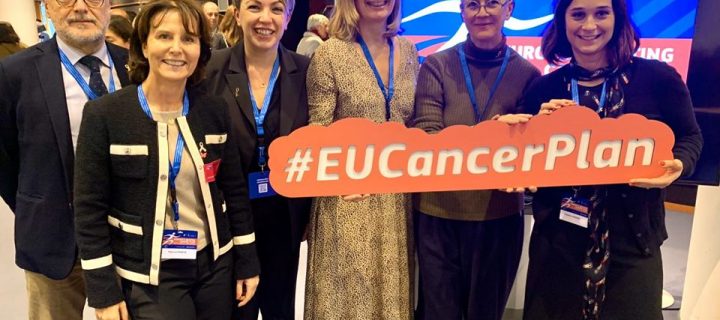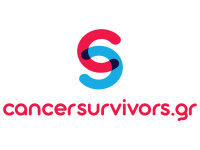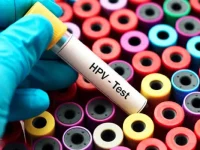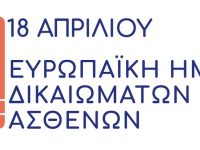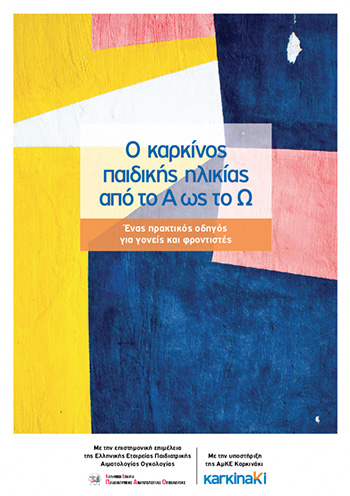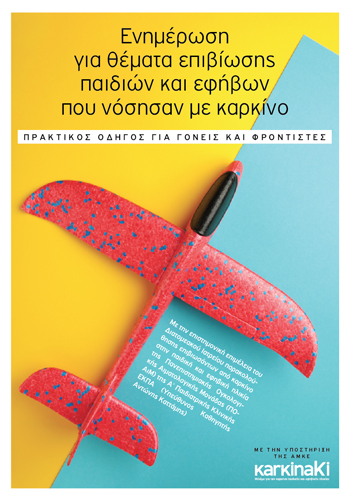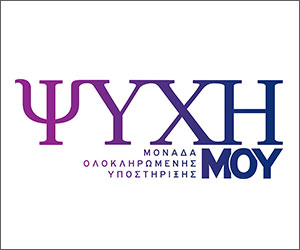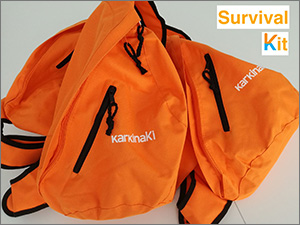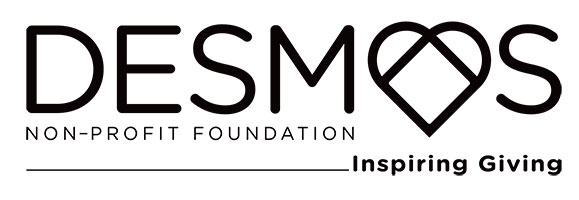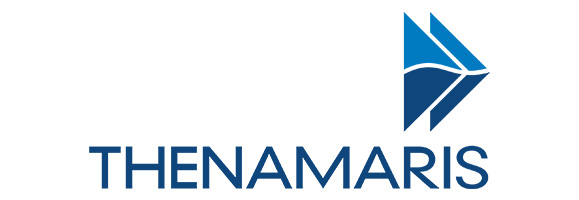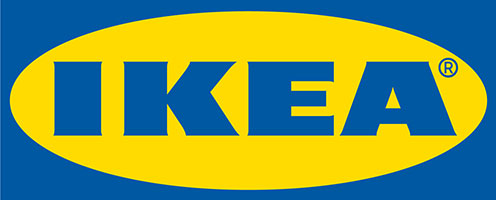Χρειαζόμαστε την βοήθεια σου, τα παιδιά με καρκίνο χρειάζονται την στήριξη σου.
Αφιέρωσε λίγο χρόνο και απάντησε στο ερωτηματολόγιο της Δημόσιας Διαβούλευσης της Ευρωπαϊκής Επιτροπής για το Σχέδιο κατά του Καρκίνου.
Ο παιδιατρικός καρκίνος δεν πρέπει να ξεχαστεί και να μείνει εκτός του Σχεδίου κατά του Καρκίνου.
Μπορούμε όλοι να συμμετέχουμε, είτε ως εκπρόσωποι οργανισμών είτε ατομικά.
Απαντάμε στην γλώσσα μας και μοιραζόμαστε με την Ευρώπη τις προτάσεις μας για τον Παιδιατρικό Καρκίνο.
Μπορείς να βρεις τις προτεινόμενες απαντήσεις και σχόλια στο ερωτηματολόγιο παρακάτω.
Επλέγουμε τις απαντήσεις που ταιριάζουν με τις απόψεις και τις προτάσεις μας και μοιραζόμαστε την εμπειρία μας.
Αυτή είναι η δεύτερη ευκαιρία που έχουμε, μετά το Roadmap του Μαρτίου, να μοιραστούμε τις προτάσεις μας και να εξασφαλίσουμε ότι ο Παιδιατρικός Καρκίνος δεν θα μείνει εκτός του Ευρωπαϊκού Σχεδίου κατά του Καρκίνου.
Το link για την Δημόσια Διαβούλευση είναι https://bit.ly/2xjLWfy.
Όλες οι φωνές μας είναι απαραίτητες.
Εκ μέρους του Childhood Cancer International Europe Committee, CCI Europe
Anita Kienesberger and Carina Schneider (AUT)
Menia Koukougianni (GR)
Patricia White (FR)
Delphine Heenen (BE)
Anne Goeres (LU)
Angelo Ricci (IT)
Dirk Hellrung (DE)
Josefien Vermeersch (BE)
Marko Ocokolijc (BE)
ΕΡΩΤΗΜΑΤΟΛΟΓΙΟ
GENERAL QUESTIONS
1. On a scale from 0 to 10, how present is cancer in your life?
10
2. What do you think is needed to beat cancer?
a. What do you think citizens can do to help beat cancer? (600 characters maximum)
• Become experts of their disease to increase cancer literacy.
• Collaborate with health professionals, government and other stakeholders.
• Get involved in the development of research projects, clinical trials, clinical and quality of life’s guidelines, etc.
b. What do you think health professionals can do to help beat cancer? (600 characters maximum)
• More awareness of paediatric cancer.
• Person centred care.
• Have training on
1. the early symptoms of paediatric cancer;
2. how to deliver the cancer diagnosis;
3. how to have the conversation about fertility preservation; (before any treatment starts – if possible-);
4. palliative care.
• Participate in European collaborative working groups.
c. What do you think public authorities/national governments can do to help beat cancer? (600 characters maximum)
• Dedicated section on paediatric cancer in EU’ Beating Cancer Plan.
• Have a National Cancer Plan (if it’s not yet implemented in your country).
• Financial support for European Research Networks (such as the specific network on paediatric cancer).
• Ensure equal access to orphan drugs and innovative treatments.
3. Do you support the idea that the EU should do more to address cancer?
a. YES
In which areas do you think the EU should prioritise its efforts (choose top 3 – at most 3 choice(s)):
o Prevention
o Screening and early diagnosis
o Treatment and quality of life of patients and carers
o Life after cancer
o Research and collection of information
o Other:
o I don’t know
If you chose “Other”, please describe it (600 character(s) maximum):
• Treatment and quality of life of patients and carers
• Life after cancer
• Research and collection of information specifically on the root causes of paediatric cancer in order to prevent their occurrence.
Which actions would you consider most useful in the areas indicated below:
Prevention
o Reduce tobacco consumption Improve (healthy) diets
o Reduce alcohol consumption
o Increase physical activity
o Reduce obesity
o Increase vaccination against Human papillomaviruses and Hepatitis B
o Avoid excessive exposure to sunlight (including sunbeds)
o Protection from exposure to certain chemicals that can cause cancer
o Other
Please describe (600 character(s) maximum)
(FYI: You can also mention these points in the later part ‘Step I Prevention’)
• Identify and understand other causes of paediatric cancer before implementing prevention policies.
• Establish and finance research programs bringing together multidisciplinary teams working on the root causes of paediatric cancer.
• Early vaccination programmes against HPV for all teenage boys and girls in every Member State.
Screening and early diagnosis
o Improving the participation to breast, cervical, and colorectal cancer screening
o Extension of screening to other cancer type
o Other
Please describe (600 character(s) maximum)
• Awareness about paediatric cancers’ possible symptoms to be included in the training program of frontline health care professionals: any delay in diagnosis can lead to worse prognosis and more serious side effects.
• Proper framework to monitor young patients closely in order to detect any secondary malignancy at an early stage.
• Equal access to genetic testing at first cancer diagnosis priced at an affordable fee leading to adequate monitoring of young patients with a cancer predisposition. (FYI: You can also tackle the point of genetic testing in ‘Step II: early diagnosis)
Treatment and quality of life of patients and carers
o Improve access to existing treatments
o Improve access to new innovative treatments
o Better psychological support inside and outside of health care services
o Improve palliative care
o Improve pain treatment
o Other
Please describe (600 character(s) maximum)
(FYI: You can also tackle these issues in ‘Step III Treatment’)
More access to and quality of treatment and care:
• Encourage and support participation in collaborative groups to achieve the same level of quality of treatment and care in all MS.
• Finance the ERN PaedCan structure and remuneration of the time spent by specialists across Europe.
• Clear definition of the criteria to be regarded as a Centre of Excellence for each MS.
• Include a research strategy within the Centres of Excellence to allow access to more targeted and kinder treatments.
• Include the participation of paediatric cancer patients in academic clinical trials as a valid motive to travel for care in the Cross-Border Healthcare Directive (Directive 2011/24/EU).
• Make the most effective drugs for young cancer patients available:
i. Identification at a European level of the essential paediatric oncology drugs
ii. Coordinated, end-to-end approach to prevent drugs shortages.
iii. Essential drugs used off-label to be reimbursed in all MS.
iv. New regulatory framework for re-purposing and “un-shelving” to fosters innovation in favour of rare indications affecting young patients.
v. Access to whole exome sequencing as standard-of-care, ideally upon diagnosis and at the very least when they relapse or if they are refractory.
vi. Reimburse all standard-of-care anti-cancer treatments, including supportive care, by national health insurances in Member States.
vii. New regulations to curb the pricing of innovative drugs and force their availability in all the Member States.
• All communications between healthcare professionals, the patient and its family take place in their mother tongue with assistance of professional translator if needed.
• Define a minimum structure to improve end-of-life experience for patients and their family.
• Educate nurses to an expert level on palliative care services and psychological support.
Life after cancer
o Better social reintegration including employment
o Better medical follow up
o Fight stigma and discrimination
o Increase survivors’ empowerment
o Other
Please describe (600 character(s) maximum)
(FYI: You can also tackle these points in ‘Step IV social integration’)
• Young patients with cancer should not just survive, but thrive:
o Long-term personalised follow-up and tailor-made program to restore the patients to full physical and mental health with support of one point of contact (‘person centred care’).
o Proper transition between paediatric and adult care
o Training of health care professionals
o Transparency about the long-term side effects and ‘the right to know what is not known’;
o Implementation of the survivorship passport in all MS;
o Specific long-term follow up programme for novel biological drugs for young patients treated with such innovative drugs beyond five years and up to the adult.
• Save families from the possibility of poverty:
o Right to an extraordinary leave and job security;
o Specific financial compensation for families who need to seek treatment far away from home (inside or outside their country of residence);
o Specific measures to accompany siblings of the patient (including psycho-social support).
• Prevent long-term marginalisation of patients:
o continued tailor-made education in hospital for the patients (and its siblings where relevant) and after treatment;
o the implementation of the right to be forgotten in all MS.
STEP I: PREVENTION – Preventing cancer by addressing risk factors
4. Do you have enough information about how to prevent cancer?
a. NO
What information would you need? (600 character(s) maximum)
• Research and collection of information specifically on the root causes of paediatric cancer in order to prevent their occurrence.
5. Which of the actions below do you think would have the biggest impact on your lifestyle habits (e.g. diet, physical activity, tobacco or alcohol consumption)? (Choose top 3 – at most 3 choices)
a. Measures on prices (including both taxation and/or incentives)
b. Advertising
c. Information campaigns
d. Legislation
e. Other
If you chose “Other”, please describe it (600 character(s) maximum):
/
STEP II: EARLY DIAGNOSIS – Preventing avoidable cancer cases through cancer screening
a. YES
To which types of cancer in priority?
o Lung cancer
o Gastric cancer
o Prostate cancer
o Ovarian cancer
o Other types of cancer
Other types of cancer (600 character(s) maximum):
Paediatric cancer with genetic predisposition:
• Genetic testing for cancer predisposition upon occurrence of first cancer when concurring symptoms;
• Genetic testing for cancer predisposition upon relapse or refractory disease or secondary cancer.
7. What could influence your decision to take part in a cancer screening programme?
a. Information about the usefulness of screening and early diagnosis
b. Convenience (proximity…)
c. Cost
d. Expertise and skills of healthcare workers
e. The safety and quality of the equipment
f. Other
In the event we cannot tick more than 3 options (we’ll find out when filling in the questionnaire online), we will tick “others” and list all those we think are important:
• Information about the usefulness of screening and early diagnosis
• Cost
• Expertise and skills of healthcare workers
• The safety and quality of the equipment
STEP III: Treatment – Best available care, treatment and quality of life for all cancer patients
8. What could Europe do to ensure that cancer patients across Europe receive the best available treatment at an affordable price, independently of where they live? (600 characters maximum)
• ERN’s
• Cross-border Health Care Directive
• Make the most effective drugs for young cancer patients available:
i. Identification at a European level of the essential paediatric oncology drugs
ii. Coordinated, end-to-end approach to prevent drugs shortages.
iii. Essential drugs used off-label to be reimbursed in all MS.
iv. New regulatory framework for re-purposing and “un-shelving” to fosters innovation in favour of rare indications affecting young cancer patients.
v. Access to whole exome sequencing as standard-of-care, ideally upon diagnosis and at the very least when they relapse or if they are refractory.
vi. Reimburse all standard-of-care anti-cancer treatments, including supportive care, by national health insurances in Member States.
vii. New regulations to curb the pricing of innovative drugs and force their availability in all the Member States.
9. Do you believe that you know where to find sufficient information about available cancer treatment services where you live?
a. NO
How can this be improved? (600 character(s) maximum)
• Quality websites explaining paediatric cancers & available treatments & clinical trials;
• Information about existing Centres of Excellence.
10. Do you consider sufficient written information regarding cancer diagnosis and possible treatments is available to patients?
a. NO
11. Do you consider adequate support, both inside and outside of the healthcare setting, is available to cancer patients?
a. NO
What additional support do you consider could be made available? (600 character(s) maximum)
• Clear announcement of diagnosis;
• Possibility for second opinion;
• Psycho-oncologists;
• Case managers or dedicated paediatric onco-nurses to verify whether the patient understood the communicated results and treatment options.
12. In your experience, do cancer patients receive treatment form a multidisciplinary team of health professionals (oncologists, researchers, psychologists)?
a. YES
13. Do you consider that adequate means are available to help families and friends caring for cancer patients?
a. NO
What additional support do you consider could be made available? (600 character(s) maximum)
o Right to an extraordinary leave and job security;
o Specific financial compensation for families who need to seek treatment far away from home (inside or outside their country of residence);
o Specific measures to accompany siblings of the patient (including psycho-social support).
o continued tailor-made education in hospital for siblings where relevant.
o Psycho-social support for family & friends caring for patient
STEP IV: SOCIAL INTEGRATION – Quality of life with and after cancer
14. In your country/region, do cancer survivors receive follow-up and support after treatment?
a. YES/NO
Please reply differently according to your / your patient organisation’s respective situation.
15. Do you consider that cancer survivors experience significant challenges in their daily life?
a. YES
Please indicate in which areas challenges are particularly significant:
o Lack of social rehabilitation, including employment
o Lack of education and training on self-management of your daily life (empowerment of cancer survivors)
o Lack of psychological support to address distress and depression
o Lack of training and support of your informal carers
o Lack of capacity of physicians and nurses to recognise your distress and depression
o Problems linked with medical follow-up, including management of the late effects of treatment
o Problems linked with other diseases (co-Morbidity)
o Others
Please describe
In the event we cannot tick more than 3 options (we’ll find out when filling in the questionnaire online), we will tick “others” and provide the list:
o Improve transition from childhood to adult care in every EU MS.
o Lack of social rehabilitation, including employment; education and training on self-management of your daily life (empowerment of cancer survivors); psychological support to address distress and depression; training and support of your informal carers; capacity of physicians and nurses to recognise your distress and depression. Problems linked with medical follow-up, including management of the late effects of treatment and with other diseases (co-morbidity)
16. Do cancer patients and survivors receive psychosocial support during or after their treatment?
a. YES/NO
Please reply according to your EU Member State respective situation.
17. Do you know or have experience of any particularly good practice in supporting cancer survivors, or do you have any suggestions as to how this could be done? (600 characters maximum)
• To support:
o Long-term personalised follow-up and tailor-made program to restore the patients to full physical and mental health with support of one point of contact (‘person centred care’).
o Proper transition between paediatric and adult care
o Transparency about the long-term side effects and ‘the right to know what is not known’;
o Implementation of the survivorship passport in all MS;
o Specific long-term follow up programme for novel biological drugs for children treated with such innovative drugs beyond five years and up to the adult.
o The implementation of the right to be forgotten in all MS.
• Good practice:
o Survivorship passport for childhood cancer survivors: www.survivorshippassport.org
o PanCare follow-up project: http://pancarefollowup.eu/
GENERAL QUESTIONS
18. Tell us what a successful cancer plan means to you. 10 years after we implement the plan, what should have improved in the livers of European citizens? (600 characters maximum)
• A dedicated section for children, adolescents and young adults in the EU Beating Cancer Plan is integrated in EU and in every Member State cancer plans with focus on the following key elements:
o Equality by access to treatment, standard-of-care drugs and innovation across Europe;
o Facilitated access to innovative drugs and creation of a research and industrialisation -prone environment for new drugs specifically developed for children;
o Financing of research on the root causes of paediatric cancer;
o Set-up of a multidisciplinary long-term follow-up for survivors to improve quality of life;
o Establishment of European database for paediatric cancer (genomic, clinical, imaging, … database) and use of AI to analyse data and foster research;
o Psychosocial and economic protection for families taking care of their critical ill child.
19. Provided it is securely managed and in full respect of data protection would you share your personal health data in order to help others and contribute to health improvements (tick all that apply)
a. With doctors?
b. With researchers?
c. With pharmaceutical industry?
Sharing data is important because all paediatric cancers are rare – data are precious and should not be wasted. Tick which parties you would agree to share your data with.
20. Have you received information on or been informed about the possibility to take part in clinical trials, including their benefits and risks?
a. YES/NO/NOT APPLICABLE
21. How can you (or your organisation) contribute to the EU plan on cancer? (600 characters maximum)
• CCI Europe is the biggest pan-European childhood cancer parents’, survivors’ and patient representatives’ organisation that advocates patient-centred treatments and research via inclusion, collaboration and transparency. (63 organisations in 31 European countries)
22. Is there anything else that you would like to add that has not been covered in this consultation? (600 characters maximum)
• Have a dedicated section on paediatric cancer in the EU’ Beating Cancer Plan.
• Incentives for enhancing research on paediatric cancer.
• More support for medical education on paediatric oncology and trainings for patients, families, carers, e.g. EUPATI.
• Incentives for medical careers in paediatric oncology.
• Work out solutions for off-label use of medicines of proven efficacy and shortage of essential drugs.
• Improve transition from childhood to adult care in every EU MS.
• Access to cross-border late-phase clinical trials.
• Etc.

